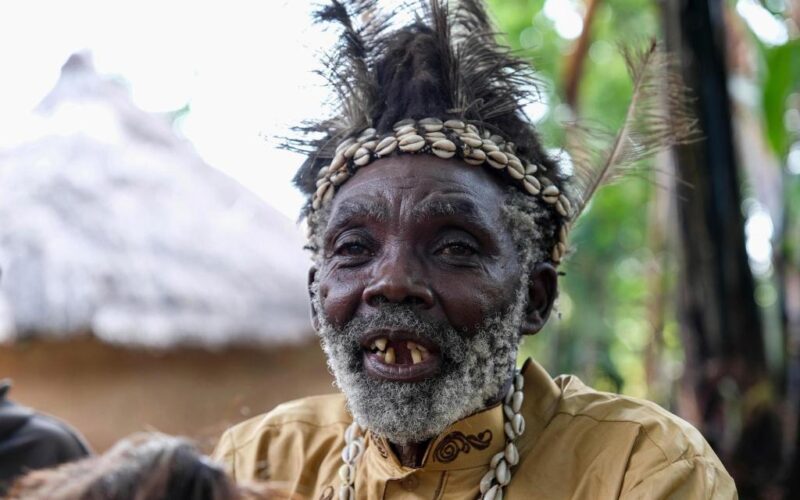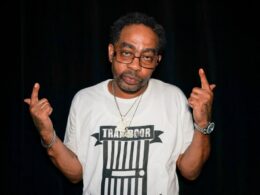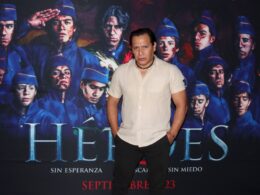By RODNEY MUHUMUZA
MBALE, Uganda (AP) — Wilson Watira offered his hand when he met his political rival at a funeral, gesturing for a proper handshake. The man didn’t want contact, instead folding a piece of paper that he aimed at Watira.
“He looked at me and picked that piece of paper of the program. He folded it and greeted me,” Watira said. “He’s just afraid of me simply because I am not afraid of him.”
Watira, who seeks a seat in Uganda’s Parliament, remembered the recent event as a vivid example of the rampant fear of witchcraft as politicians seeking office try to outmaneuver each other in this east African country.
In public, political contests often entail spectacles where rivals rent cars to mount raucous processions in the streets, offering cash and other inducements to voters. Behind the scenes, the struggle for victory can be intensely spiritual, with faith figuring in incidents ranging from ritual sacrifice to visits with traditional healers, according to Watira and others who spoke to The Associated Press.
Watira, a leader of a group uniting Uganda’s Bamasaba people, said the incumbent legislator who refused to shake his hand may have worried that would somehow give Watira the upper hand or provoke misfortune. Watira said he wasn’t surprised by the man’s behavior.
“The moment your mind is pushed to that level, everything which happens you will always be suspicious,” he said, speaking of overcoming his own fear of witchcraft. “You will start imagining, and that is the biggest challenge in our society.”
An uneasy coexistence between traditional healers and Christianity
Spiritual warfare among politicians is part of a wider struggle over faith in Uganda, where Christianity is the dominant religion. Many who regularly attend church also secretly visit traditional shrines for the occult service they believe can lead them to victory.
The syncretism has long confounded church leaders who teach that Christianity is incompatible with any vestiges of traditional religion, which remains widely practiced across sub-Saharan Africa.
In African politics, often marked by bitter feuds along class and ethnic lines, fear of witchcraft can prove explosive.
In South Sudan, Vice President Riek Machar believes himself to be the left-handed man with gapped teeth prophesied by a tribal seer a century ago as the unifying leader of his nation. There’s widespread belief that the superstition fuels Machar’s quest for power in South Sudan, which has been wracked by war since independence in 2011 as Machar tried to remove President Salva Kiir.
In Kenya, some of the anti-government protesters who gathered last month in the capital, Nairobi, said the disorientation they felt while nearing the presidential residence was likely an evil spell in favor of President William Ruto. He also faces criticism for building a church within the statehouse compound that some critics see as an ominous shrine.
In Zambia, two men are on trial for allegedly practicing witchcraft and possessing charms intended to harm President Hakainde Hichilema. Hichilema himself once was accused of practicing witchcraft by his predecessor Michael Sata, who contended the charms from his home region were stronger.
Promises of magical campaign advice
In Uganda’s capital, Kampala, and other cities, some street poles are plastered with notices by people promising to magically catch thieves or regain lost lovers. Now, many also advertise authority to secure politicians’ victory in elections set for January 2026.
“Across all Ugandan communities there is a crazy reliance on the witch doctors, crazy reliance by politicians,” said Steven Masiga, a researcher and cultural leader in the city of Mbale. “Witch doctors now are reaping money from politicians. Now, as politicians mobilize money, there is a percentage for the witch doctor because the real hope is in the witch doctor.”
Many candidates feel that “voters can oscillate around but the witch doctors never let you down,” he said.
Masiga cited a politician in his area who years ago, urged on by a witch doctor, skinned a goat alive without slaughtering the animal. The witch doctor’s client won the election.
Ugandan President Yoweri Museveni, in power for four decades and a candidate for reelection, has previously expressed his respect for African witch doctors, an often pejorative term referring to medicine men and women who prescribe herbs for ailments and others who claim to erase problems by magic. Some of these practitioners prefer to be described as traditional healers.
In a speech last year, Museveni recalled jumping over a slaughtered chicken three times in the ritual he performed as the leader of the bush war that propelled him to power in 1986. Museveni said of traditional religion that “it is very strong” and urged mainstream religious leaders not to antagonize its practitioners.
“We had a very good relationship with them,” he said of traditional healers.
Many Ugandan politicians are believed to retain the services of witch doctors, but they rarely admit it in public to avoid ridicule. Some national leaders have been seen entering witch doctors’ shrines over the years, drawing criticism from church leaders who condemn such behavior.
In 2016, parliamentary speaker Rebecca Kadaga was photographed entering a shrine associated with her clan in eastern Uganda. The Anglican archbishop issued a rebuke; Kadaga, who has since left the speakership, said she sought to inform her ancestors of her political success.
“Who doesn’t have an origin? Who doesn’t have where they came from? Those are my roots,” she told reporters.
A traditional healer with many clients
In Mbale, where ritualized circumcision of boys underscores widespread belief in age-old customs, traditional healer Rose Mukite said she receives political clients from far outside her region.
In her shrine, an igloo-like structure whose small entrance forces clients to kneel or squat to get in, she demonstratefd her practice by shaking calabashes and tossing cowrie shells on the floor. A tobacco pipe is another tool of her trade; she blows smoke while divining the future.
Mukite’s career began in 1980 after being possessed by a spirit that she said she had to overcome to gain the spiritual authority she now claims. She offers her services for a small fee.
“I have many, many (clients),” she said.
She said she helps some politicians by administering a tree bark to chew, potentially saving them from calamities such as imprisonment. If her practices were unhelpful, she said, she wouldn’t still be at work after so many years.
Sometimes it’s too late, she said — politicians come to her when already doomed to fail.
“I can’t say that I succeed with everything,” she said. “Just like in the hospital when death comes.”
Peace Khalayi, a Catholic running to represent the women of her district in Parliament, has fended off suggestions by supporters who want her to perform rituals they think can help her win.
She campaigns among Muslims and Seventh-Day Adventists and would consider paying homage to a village elder. But a classic act in the practice of traditional religion, such as a requirement to sacrifice livestock, is unacceptable to her.
She recalled instances where people urged her to consult a witch doctor.
“You tell them, ‘We shall go.’ You pretend that, yes, you have accepted. But you do not actually show up.”
Still, Khalayi said she sometimes worries how her opponents could hurt her if she isn’t sufficiently protected.
“Definitely the fear is there. That’s no lie,” she said. “When you have an opponent, you may probably want to be open with them, but it is just in us that you cannot openly engage with your opponent.”
Associated Press religion coverage receives support through the AP’s collaboration with The Conversation US, with funding from Lilly Endowment Inc. The AP is solely responsible for this content.
Originally Published:

















